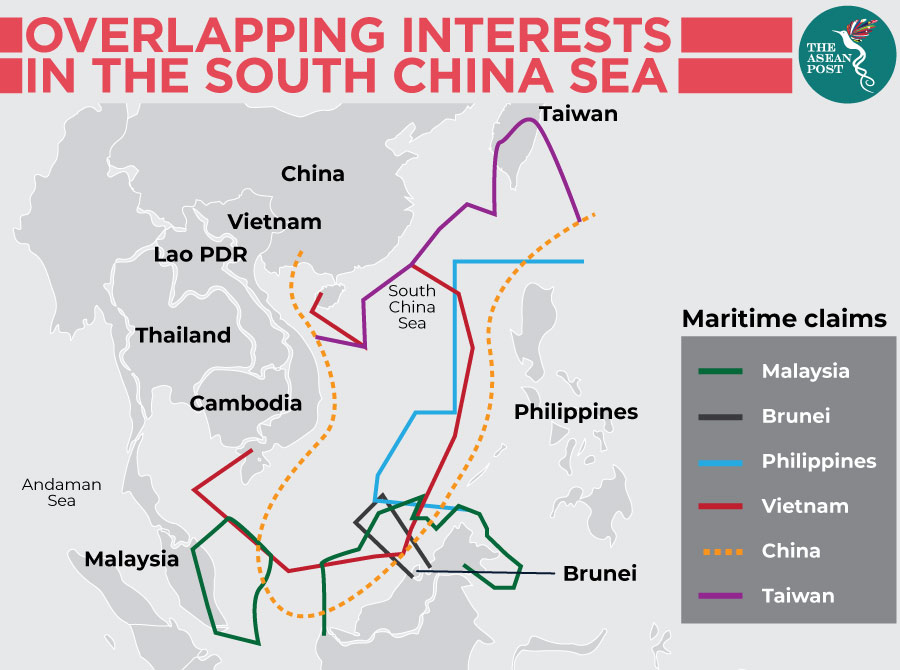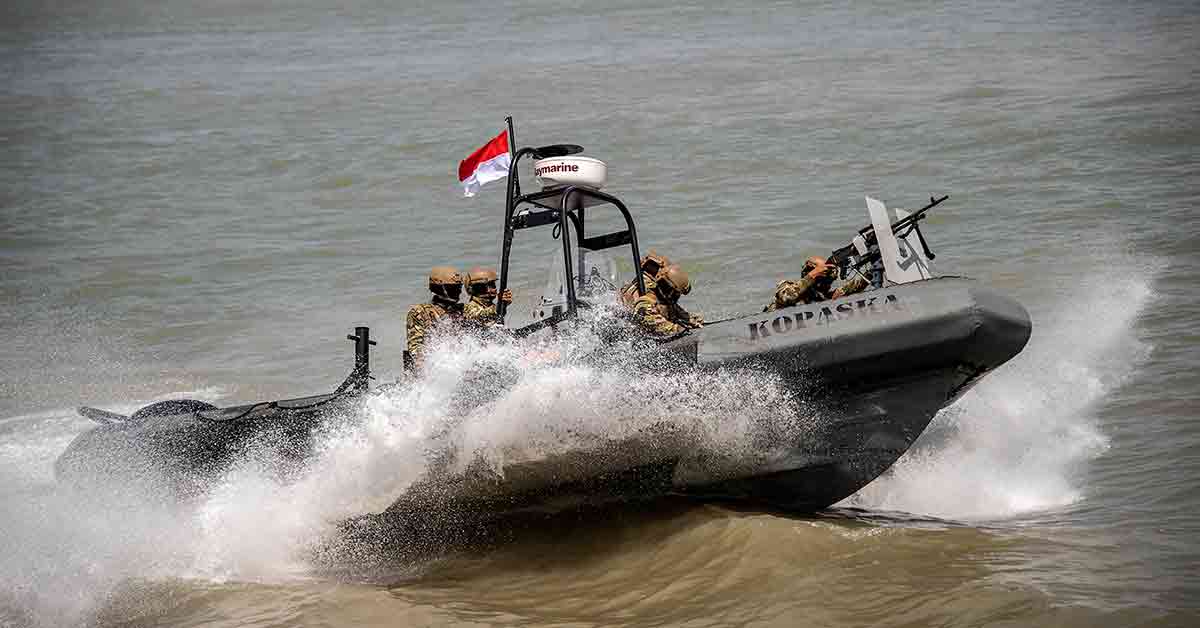“The security development is also affected by the great power; the South China Sea and Korean Peninsula conflict will affect the security and stability in the region.” These were the words of Indonesian Defence minister Prabowo Subianto at the 6th Annual Defence Ministers’ Meeting Plus, in Bangkok, Thailand.
The newly elected Indonesian Defence Minister mentioned that the ongoing South China Sea conflict remains one of the biggest threats to Indonesia and the region. On many occasions, he has reiterated the importance of the involvement of all countries in Indonesia’s defence policy – his famous “total people’s defence”. The question is whether Prabowo will implement it in the South China Sea?
Prabowo, in his first hearing with the House of Representatives commission, said that to tackle the classic problem of a lack of budget in the defence sector, a “total people’s defence” policy could act as a solution. He argues that Indonesia should prepare all elements to face the possibility of a threat to national security.
He explains that it has been Indonesia’s doctrine that all people should also contribute to protect national security. In Bahasa Indonesia this doctrine is also well known as “Perang Semesta.” Where, during the struggle for independence, all civilians were involved in protecting the country’s sovereignty and independence.
Today, however, there is still no clear strategy on what ‘total people’s defence’ on the sea would look like. But one could argue that it would involve all elements – including non-military civilians such as fishermen and fishing vessels – to back-up the Indonesian Navy.
Involving a non-military element as a reserve force to support the navy is not a new concept. For the last several years, China has implemented a similar policy for what is known as the Chinese Maritime Militia. It has been used by China to support their maritime claims.
The Pentagon’s 2019 report titled, Militia “a subset of China’s national militia, an armed reserve force of civilians available for mobilisation”, regards the militia as civilians who have the function of a reserve force. The idea could be in line with Prabowo’s “total people’s defence” which involves the non-military force to act as a national defence reserve.

At the ASEAN Defence Ministers’ meeting, Prabowo mentioned that the South China Sea conflict is still a possible threat to the region, but he didn’t really elaborate on Indonesia’s strategy if the situation deteriorates to an open conflict. He only reiterated the importance of the ongoing code of conduct with appreciation.
On the one hand, this is understandable because Indonesia is not a claimant in the dispute. However, there are some parts of Indonesia’s Exclusive Economic Zone (EEZ) included in China’s controversial “nine dash line”.
Over the past five years, there have been some incidents involving Indonesian law enforcement and Chinese fishing vessels in the Indonesian EEZ. One of these included shots fired by the Indonesian Navy at a Chinese trawler near the disputed area. This was to show that Indonesia had strong commitment in protecting its national sovereign rights.
The incident was met by a strong protest from China’s Ministry of Foreign Affairs. The Ministry said that Indonesia could worsen the conflict and might provoke tensions in the area. However, Indonesia argued that what was done was merely law enforcement which was aligned with international law procedures at sea.
On many occasions, President Joko Widodo has stated that he will not tolerate any breach to national sovereignty at sea. But he also doesn’t want to undermine the importance of a good relationship with China. Therefore, maintaining a balance between the two seems to be his ultimate goal.
Some scholars argue that one of the benefits of using a maritime militia is that it will avoid the rigid and sensitive actions commonplace with the navy. Moreover, it can also optimise the role of civilians as a reserve for military capacity.
The use of maritime militia to support Indonesia’s defence capacity at sea might be one of the options Prabowo could implement under the country’s ‘total people’s defence’ policy in the South China Sea.

Related articles:
